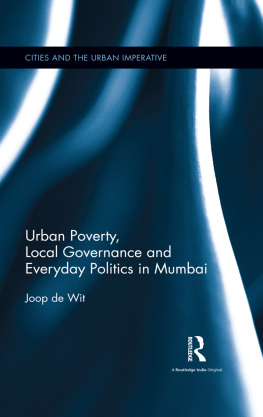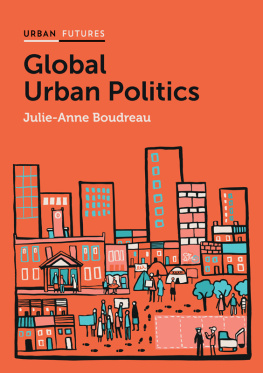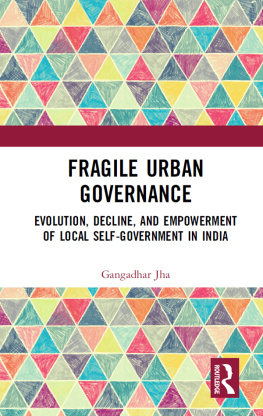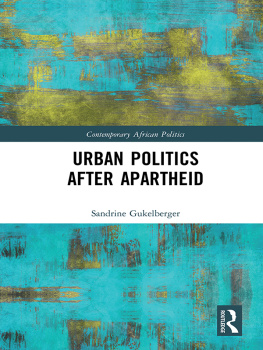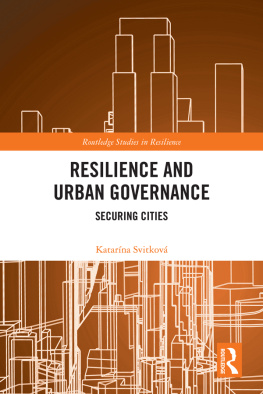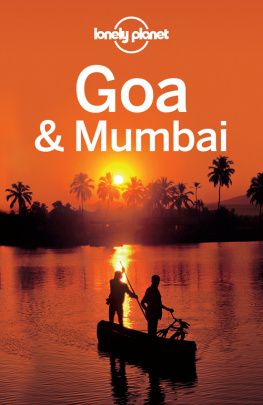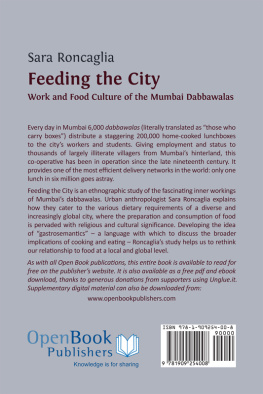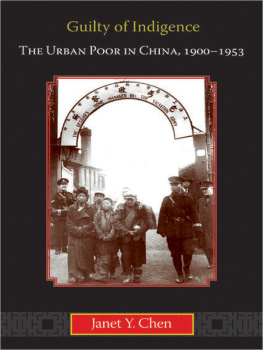Urban Poverty, Local Governance and Everyday Politics in Mumbai
This book explores the informal (political) patronage relations between the urban poor and service delivery organisations in Mumbai, India. It examines the conditions of people in the slums and traces the extent to which they are subject to social and political exclusion. Delving into the roles of the slum-based mediators and municipal councillors, it brings out the problems in the functioning of democracy at the ground level, as election candidates target vote banks with freebies and private-sector funding to manage their campaigns. Starting from social justice concerns, this book combines theory and insights from disciplines as diverse as political science, anthropology and policy studies. It provides a comprehensive, multi-level overview of the various actors within local municipal governance and democracy as also consequences for citizenship, urban poverty, gender relations, public services, and neoliberal politics.
Lucid and rich in ethnographic data, this book will be useful to scholars, researchers and students of social anthropology, urban studies, urban sociology, political science, public policy and governance, as well as practitioners and policymakers.
Joop de Wit is Senior Lecturer in Public Policy and Development Management, International Institute of Social Studies of Erasmus University (ISS), The Hague, The Netherlands. An anthropologist, his research interests are political science, governance, policy issues, urban poverty, and decentralisation. He has published the books Poverty, Policy and Politics in Madras Slums: Dynamics of Survival, Gender and Leadership (1996) and New Forms of Urban Governance in India: Shifts, Models, Networks and Contestations (co-edited with I.S.A. Baud, 2008) as well as numerous articles.
Cities and the Urban Imperative
Series Editor: Sujata Patel, Professor
Department of Sociology, University of Hyderabad
For a full list of titles in this series, please visit https://www.routledge.com/Cities-and-the-Urban-Imperative/book-series/CUI
This series introduces a holistic approach to studying cities, the urban experience and its imaginations. It assesses what is distinctive of the urban phenomenon in India, and also delineates the characteristic uniqueness of particular cities as they embrace change and create ways of experiencing modernities.
Taking an interdisciplinary route, the series evaluates the many facets of urbanisation and city formation and explores the challenges faced in relation to regional, national and global processes.
The books in this series present the changing trends in macro- and micro-urban processes; the nature of demographic patterns of migration and natural growth therein; spatial reorganisation and segregation in urban areas; uneven economic development of manufacturing and services in cities; unequal access to power in the context of formal citizenship; increasing everyday violence and declining organised protest; and breakdown of urban family life in juxtaposition with the reconstitution of community. They trace how new forms of socialities are replacing old forms of trust and solidarity and how these are being institutionalised in distinct and diverse ways within South Asia.
Also in this Series
Participolis
Consent and Contention in Neoliberal Urban Governance
Editors: Karen Coelho, Lalitha Kamath and M. Vijayabaskar
Dharavi
From Mega-Slum to Urban Paradigm
Marie-Caroline Saglio-Yatzimirsky
Beyond Kolkata
Rajarhat and the Dystopia of Urban Imagination
Ishita Dey, Ranabir Samaddar and Suhit K. Sen
First published 2017
by Routledge
2 Park Square, Milton Park, Abingdon, Oxon OX14 4RN
and by Routledge
711 Third Avenue, New York, NY 10017
Routledge is an imprint of the Taylor & Francis Group, an informa business
2017 Joop de Wit
The right of Joop de Wit to be identified as author of this work has been asserted by him in accordance with sections 77 and 78 of the Copyright, Designs and Patents Act 1988.
All rights reserved. No part of this book may be reprinted or reproduced or utilised in any form or by any electronic, mechanical, or other means, now known or hereafter invented, including photocopying and recording, or in any information storage or retrieval system, without permission in writing from the publishers.
Trademark notice: Product or corporate names may be trademarks or registered trademarks, and are used only for identification and explanation without intent to infringe.
British Library Cataloguing in Publication Data
A catalogue record for this book is available from the British Library
Library of Congress Cataloging-in-Publication Data
A catalog record has been requested for this book
ISBN: 978-1-138-20749-3 (hbk)
ISBN: 978-1-315-46217-2 (ebk)
Typeset in Sabon
by Apex CoVantage, LLC
I carried out my first anthropological slum study in Madras in 1984 and kept engaged with urban poverty and governance in India ever since. A first step was my PhD research in the same city in the late 1980s. Rather than only targeting the urban poor, I now expanded my scope to include the interfaces between slum people and the local government in service delivery and policy making, noting the importance of informal patronage and political relations. Following my PhD I had a most instructive time in the 1990s in Bangalore as resident programme advisor of the Dutch-funded Bangalore urban poverty programme. From 2003 to 2006 I was part of a team leading an Indo-Dutch research project to investigate changing forms of urban governance in India, together with Isa Baud of Amsterdam University and Amitabh Kundu of the Jawaharlal Nehru University. The research cities were Delhi, Mumbai and Chennai (formerly Madras). The latter studied the evolution of publicprivate partnerships and new forms of urban finance. My focus was urban decentralisation where I gradually came to consider the local councillors as the key agents linking poor city people to organisations and institutions critical for them. In areas such as health, education, sanitation, and also police problems, councillors displayed a solid mediation and problem-solving capacity. But there was always a price, for instance bribes or the promise to vote for their parties.
Madras in the 1980s was still a relatively parochial place, where the local state for slum people was mostly the corporation and slum board, with little evidence of privately provided services. The private business sector was small, and there was no capitalism in its present dominant form; nobody talked much about middle classes. India then had a regime of protectionist and interventionist policies under Licence Raj with low Hindu rates of economic growth. All this changed with the opening up of India from 1991, the start of Indias neoliberal trajectory. We saw this evolving in our research, with increased urban growth and indications that Indias rich and poor were growing apart. Income polarisation increased; high-rise apartment towers and shopping malls emerged in cities alongside sprawling slums, which, however, did not seem to change much. India opened up to outside forces of globalisation, following global trends of deregulation and involving non-state actors notably private-sector firms but also NGOs to co-govern with the state. A general move occurred towards discourses and practices now labelled multi-stakeholder governance with agreeable assumptions of pluralism and hopes for better, even good governance. And where Mumbai goes, it did grow economically and capitalism struck roots, with lots more money going around. But bad governance also increased, and the benefits of growth were not being shared equally across its classes.

